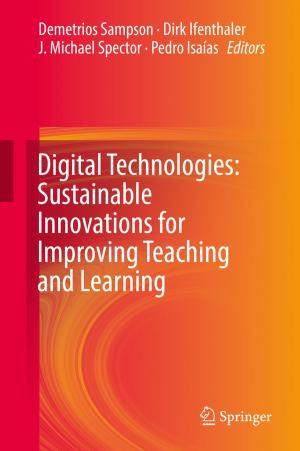Planning Support Science for Smarter Urban Futures
Nonfiction, Science & Nature, Science, Earth Sciences, Geography, Social & Cultural Studies, Social Science, Human Geography| Author: | ISBN: | 9783319578194 | |
| Publisher: | Springer International Publishing | Publication: | May 11, 2017 |
| Imprint: | Springer | Language: | English |
| Author: | |
| ISBN: | 9783319578194 |
| Publisher: | Springer International Publishing |
| Publication: | May 11, 2017 |
| Imprint: | Springer |
| Language: | English |
This book offers a selection of the best articles presented at the CUPUM (Computers in Urban Planning and Urban Management) Conference, held in the second week of July 2017 at the University of South Australia in Adelaide.
It provides a state-of-the-art overview of the availability and application of planning support systems (PSS) in the context of smart cities, big data, and urban futures. Rapid advances in computing, information, communication and web-based technologies are reaching into all facets of urban life, creating new and exciting urban futures. With the universal adoption of networked computing technologies, data generation is now so massive and all pervasive in society that it offers unprecedented technological solutions for planning and managing urban futures. These technologies are essential to effective urban planning and urban management in an increasingly challenging world, with socially disruptive changes, more complex and sophisticated urban lives and the need for resilience to deal with the possibility of adverse future environmental events and climate change.
The book discusses examples of these technologies which encompass, inter alia: ‘smart urban futures’, where cities with myriad sensors are networked with communication technologies that enable the city planners to monitor well-being and be responsive to citizens' needs to allow dynamic management in real-time; PSS that encompass new hardware, develop new indicators, applications and innovative ways of facilitating public and community involvement in the management and planning of urban areas; and urban modelling that draws on theory and the richness of data from the growing range of urban sensing and communication technologies to build a better understanding of urban dynamics, trends and 'what-if' scenario investigations, and to provide better tools for planning and policymaking.
This book offers a selection of the best articles presented at the CUPUM (Computers in Urban Planning and Urban Management) Conference, held in the second week of July 2017 at the University of South Australia in Adelaide.
It provides a state-of-the-art overview of the availability and application of planning support systems (PSS) in the context of smart cities, big data, and urban futures. Rapid advances in computing, information, communication and web-based technologies are reaching into all facets of urban life, creating new and exciting urban futures. With the universal adoption of networked computing technologies, data generation is now so massive and all pervasive in society that it offers unprecedented technological solutions for planning and managing urban futures. These technologies are essential to effective urban planning and urban management in an increasingly challenging world, with socially disruptive changes, more complex and sophisticated urban lives and the need for resilience to deal with the possibility of adverse future environmental events and climate change.
The book discusses examples of these technologies which encompass, inter alia: ‘smart urban futures’, where cities with myriad sensors are networked with communication technologies that enable the city planners to monitor well-being and be responsive to citizens' needs to allow dynamic management in real-time; PSS that encompass new hardware, develop new indicators, applications and innovative ways of facilitating public and community involvement in the management and planning of urban areas; and urban modelling that draws on theory and the richness of data from the growing range of urban sensing and communication technologies to build a better understanding of urban dynamics, trends and 'what-if' scenario investigations, and to provide better tools for planning and policymaking.















